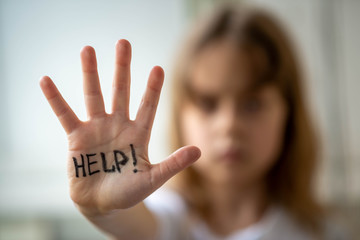CHILD PROTECTION
What To Do When the Children’s Aid Society Calls Doing an Investigation?
It can be terrifying to have child and family services show up at your home saying they are investigating child abuse or whether you are a satisfactory parent. Children’s aid societies do not do spot checks on parents, so if you did not invite them, someone has given the agency information that there is a problem with your parenting, or that you are abusing your kids. When they are investigating child abuse or child neglect, child protection workers have a lot of powers to get information from people, do searches and even take kids away immediately. The social worker may be trying to get information from you to prove that you are not caring for your children appropriately so that the children’s aid society can take the kids away. However, unlike in criminal proceedings, you do not necessarily have the right to remain silent. In fact, if you refuse to speak to the social worker, or you do not let your kids speak to the social worker alone, then that can be used as a basis to take the kids away on the assumption you are hiding something.
First impressions matter a lot in child protection investigations. If you make a bad first impression, the child protective services may stay in your life for a long time, even if they can’t find anything, just because they are suspicious of you. If you make a really good first impression, the agency may go away and not bother doing a complete investigation. Here are some tips about what to do if you hear from a children’s aid society that they are investigating you:

1. Call a child protection lawyer
If you have a chance before the worker shows up at your house, look for a lawyer that practices child protection law/does children’s aid society cases. This area of law is very different from family law or criminal law. If you treat a child protection worker the same way you might treat a police officer, you will get yourself in trouble. Each child protection case is unique so you need specific advice from a lawyer on your specific circumstances. Getting a lawyer involved early can make a huge difference. Having a lawyer to challenge the CAS taking your kids away right away gives you the best chance of getting the kids back quickly. For more on that, see this article.
2. Do not refuse to speak to or meet with the child protection worker.
If you refuse to meet with the child protection worker, you look like you have something to hide. The worker will be very suspicious. You do not have the right to remain silent – unless you may be facing criminal charges. If someone has alleged that you have assaulted or sexually molested your children, the Children’s Aid Society will be working closely with the police. They will report everything you say to the police, and the police and prosecuting Crown Attorney may use those statements against you to get a conviction in criminal court. If that is the case, then you need to put off discussing those allegations until you have spoken with a lawyer, because that is a very difficult situation that requires careful planning to keep your kids with you and you out of jail.


3. Make sure your house is clean, tidy and kid-friendly.
This is part of making a good first impression. If your house is a mess or disorganized, you look like you are having difficulty coping and that concerns children’s aid workers. If your house is reasonably tidy, then you look “on top of things” and that indicates to the worker that you have your life together enough to parent. Children’s Aid Society workers also want to see that the house is “baby-proofed” or “kid proofed”, meaning that electrical outlets are covered, poisons are locked out of reach, stairs are blocked off for young childen, the house has working smoke and carbon monoxide detectors, there are no safety hazards in the house and nothing else poses a physical danger to the children. They want to see that there is adequate and appropriate food in the house. It is also important to have age-appropriate toys and learning activities in the home. Child protection workers also look to see if there is evidence of a happy family life such as photographs, souvenirs and mementoes that show the family has a close and loving relationship with each other. Finally, child protection workers are required to see the children’s rooms to make sure they are appropriately furnished and have all the things necessary based on the children’s ages. It can make the worker much more comfortable and at ease if you offer him or her a tour of the house rather than having to ask. That shows both that you are proud and take care of your home and that you have nothing to hide.
4. Be very nice to the child protection worker.
In fact, go out of your way to be nice to the worker and thank the worker for being concerned about your children. This not like dealing with the police, where you have no obligation to help them out. Children’s aid societies, judges and other professionals who may become involved expect you to cooperate with the children’s aid society because everyone will assume that everyone’s goal should be to work together to do what is best for the kids. If you are not willing to “work together”, child protection workers may think your children’s best interests are not important to you, and perhaps that you care so little for your children that you might harm them. Further, if the children’s aid society does not think it “can work with you,” it may take your kids away because it thinks it cannot protect them in your care, or the agency may take you to court to get court orders to force you to do things. In addition, if the child protection worker does not like you, he or she may proceed with the highest level of intervention with your family that the children’s aid society can get away with. It is very important to be nice. If someone has to be mean to the children’s aid society or force the agency to play by the rules, hire a lawyer to do that for you so that you can stay on the child protection worker’s good side. It will make your life much easier.


5. Let the child protection worker speak with your kids alone.
This is covered in more detail on this page. As part of their investigation, children’s aid society workers have the right to speak to your kids, without you present, if they are investigating abuse or neglect by you. Your child can have a lawyer present, but that request had to come from your child – not from you and not from you through your child. Again, if you do not allow the children to speak to the worker, there will be a suspicion that you are trying to “cover up” something. And, the worker will just go to your child’s school, day care, or activities and speak to your child there instead. It can cause you serious problems if the worker thinks you “put words in your kid’s mouth”, so it is best not to tell your children what to say to the worker and only tell them to “relax and be honest.”
6. Speak to a lawyer before signing anything.
Ideally, you will speak to a lawyer before you meet with the worker to go over what you should and should not sign. If you refuse to sign certain things, it will look like you have something to hide. It most cases, although you should check with a lawyer, it will be alright to sign authorizations to allow the children’s aid society to speak to doctors, teachers, activity leaders and similar professionals because they can speak to those people anyway as part of a child protection investigation – the authorizations just make it easier for them. So, unless there is a good reason to delay the children’s aid society getting that information for a short time, there is usually no harm in signing. However, you do NOT want to sign any sort of “agreement” with the children’s aid society because that agreement can take away a lot of your rights. You should never sign any sort of contract or agreement without speaking to a lawyer to make sure you understand what it is that you are signing. If you are not absolutely certain you know what you are signing what it fully means and what it lets the CAS do, speak to a child protection lawyer.


7. Ask for file disclosure
unless the worker leaves after the meeting saying that the agency intends to close its file. If the investigation is ongoing, you are entitled to see the Children’s Aid Society’s file on you. That can be important for several reasons. First, it lets you know what, specifically, they are investigating, so you will know what they are looking for. Second, it lets you see what they are basing their concerns on, so you can address the concerns. Third, it may let you know the weaknesses in the Children’s Aid Society’s investigation. Finally, if the CAS is taking you to court, or taking your kids into care, then you may get a lot of very useful information to challenge the Children’s Aid Society’s case in court. Many children’s aid societies are slowly releasing their files. However, you are entitled to see it if the investigation is ongoing. Often it helps to have a lawyer involved who can assert your rights in this regard as lawyers can be harder for a children’s aid society to push around.
8. Do not assume that the children’s aid society is happy until you get a letter saying they have closed their file.
The investigation is ongoing until you get a letter that says it has stopped. The child protection workers may be less visible for a while, so they watch you from a distance to see if you do things wrong. Also, know that once a children’s aid society has investigated you, even if they found nothing wrong, the children’s aid society puts your name in a database that other Ontario children’s aid societies can access if they come into contact with you. This allows the agencies to see if similar concerns are repeatedly reported. So, you need to stay on your best behaviour after a visit from a child protection worker.


9. Listen to the Ontario Family Law Podcast episode on what to do when the children’s aid society calls.
It covers how to act, whether you should speak to the investigator, whether you should let the children be interviewed, what to sign and what not to sign, when to speak to a lawyer and several other tips.
10. Get More Information About Child Protection Law By Watching This Video:
There may be additional things that you should do if a children’s aid society is investigating you. These additional steps depend on your, and your children’s, circumstances. It is always a good idea to speak to a child protection lawyer whenever a children’s aid society is doing an investigation of you or your children so that you can take the most appropriate steps to protect yourself and keep your family together.
Why Would Someone Call the Children’s Aid Society?
If a child protection worker needs to speak to you, the motivations of the person who made the report to the Children’s Aid Society are not important. You will not get the CAS to “go away” by trying to convince the worker that the person who made the report was being vindictive. The child protection worker has a legal duty to check to make sure that the children are safe if someone has raised concerns. Even if the worker believes the call was made out of spite, the worker still has to check to make sure the children are safe – and safe from all potential risks of harm, not just the one that the person called about. So, cooperating to show the children are not at risk is a much better way to get the CAS to “go away” thann alleging that the person who made the report did so out of spite. Often, the workers are not able to tell you who made the report, and if you cause the wrong person, you may convince the worker that you are putting the children at risk by exposing them to conflict.
Professionals, as well as almost everyone who works around children, have a legal duty to let the Children’s Aid Society know if they have any suspicion at all that a child may be at risk of harm. Those people can be charged if they do not make a report if they have a reason to be suspicious that a child is at risk of harm. So, many professionals make the call because they feel they have to, not because they have serious concerns. For more about why a professional may have to report, watch the video below, or listen to this episode of the Ontario Family Law Podcast.
Our Team of Expert Child Protection Lawyers
John Schuman and his team are experienced child protection lawyers. For almost 20 years, John has acted for parents, foster parents, prospective adoptive parents, children’s aid societies, First Nations (called “bands” in the Child and Family Services Act), and government agencies in child protection proceedings and child protection-related matters. He has argued CAS cases before every level of court in Ontario, including obtaining precedent-setting appeal decisions. John’s expertise in child protection matters has been sought out by clients around the world.
John and his team have been doing child protection cases for almost 20 years and they have a thorough understanding of how children’s aid societies work and the challenges parents face in these cases. The lawyers who work with John on these cases also have extensive training and experience in child protection matters.
John and his team are quick to act in child protection cases to prevent the children from being lost in “limbo,” while their knowledge of the area allows them to be thorough and ensure that all parties fulfill their responsibilities. John’s team also provides advice and direction to clients about what to do out of the courtroom to make the most favourable impression on judges and succeed in the courtroom. Unfortunately, the rapid and comprehensive approach taken by John and his team does not work well within the Legal Aid framework. We are not able to accept legal aid certificates on these matters and our initial retainers start at $7500.00, which allows our team to focus quickly on your case and do what needs to be done rapidly – usually before the first court appearance (this page explains why acting fast is critical). If you are not able to afford that retainer, we have two suggestions:

1) book a consultation with us (by calling 416-446-4036, emailing John, or using the form below). Consults start at $299.00 + HST (for lawyers who work with John – $535.00 plus HST for John) , or
2) Get a copy of John’s book The Guide to the Basics of Ontario Family Law. The $9.99 eBook is available for IMMEDIATE download from the Canadian Kindle Store, Kobo or from iTunes for iPad, iPhone and Mac, or you can order the paperback. That easy-to-understand book explains Ontario child protection proceedings and gives advice on how to get what you want in child protection court (as well as explaining the basics of most other issues in Ontario Family Law).
COMMENTS:
RESPONSE BY JOHN SCHUMAN:
The CFSA, the Ministry Standards, and the Courts have all mandated that children’s aid societies must speak with children (alone) during the course of investigations.
Section 15(3) sets out the functions of a children’s aid society, one of which is to investigate child abuse and neglect. Section 20.1 allows the ministry to set out standards and directives for how those investigations will be carried out. The Ministry does that through publishing standards for children’s aid societies. Pages 26 and 27 of those standards require that the child protection worker individually interview each of the children in the family being investigated. The courts have then held that section 15(3) must empower a children’s aid society to act pursuant to the standards made under the CFSA, to it is an empowering section and the court should not interfere with a children’s aid society doing what it is required to do pursuant to the established standards. See e.g. Children’s Aid Society of Hamilton-Wentworth v. C.(I.), 1993 CanLII 5608 (ON SCDC)
Of course, there are also lots of cases where courts have punished children’s aid societies, either through costs or damages, when they abuse those powers.

Contact Us
To contact John Schuman, Certified Specialist in Family Law, call 416-446-5847, email him at john.schuman@devrylaw.ca, or use the form on this page.



